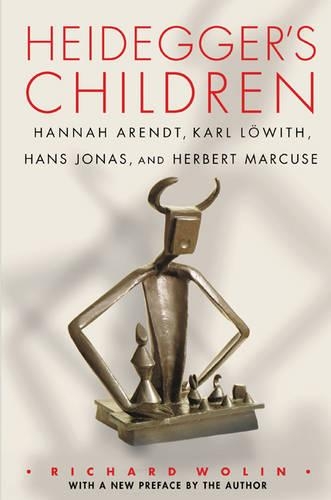
Heidegger's Children: Hannah Arendt, Karl Lwith, Hans Jonas, and Herbert Marcuse
(Paperback)
Publishing Details
Heidegger's Children: Hannah Arendt, Karl Lwith, Hans Jonas, and Herbert Marcuse
By (Author) Richard Wolin
Preface by Richard Wolin
Princeton University Press
Princeton University Press
2nd November 2015
United States
Classifications
Tertiary Education
Non Fiction
Social and political philosophy
Social groups: religious groups and communities
193
Physical Properties
Paperback
320
Width 152mm, Height 235mm
454g
Description
Martin Heidegger is perhaps the twentieth century's greatest philosopher, and his work stimulated much that is original and compelling in modern thought. A seductive classroom presence, he attracted Germany's brightest young intellects during the 1920s. Many were Jews, who ultimately would have to reconcile their philosophical and, often, personal
Reviews
"Provocative and erudite... [Wolin] provide[s] insightful portraits of the intellectual evolution of some of the last century's most ambitious political and social thinkers. His case against Heidegger's children sets a clear standard for those who wish to adopt an informed but cautious stance toward Heidegger's immense influence."--James Ryerson, New York Times Book Review "Anyone tempted to introduce Heidegger into the conversation should read this fascinating study."--Lesley Chamberlain, Independent "A thought-provoking and illuminating look at Heidegger's legacy... Wolin's thesis grasps the profound and pervasive connection between Heidegger's thinking and the Holocaust itself."--Choice
Author Bio
Richard Wolin is professor of history and comparative literature at the Graduate Center of the City University of New York. He is the author of The Politics of Being, The Heidegger Controversy, and The Terms of Cultural Criticism.
